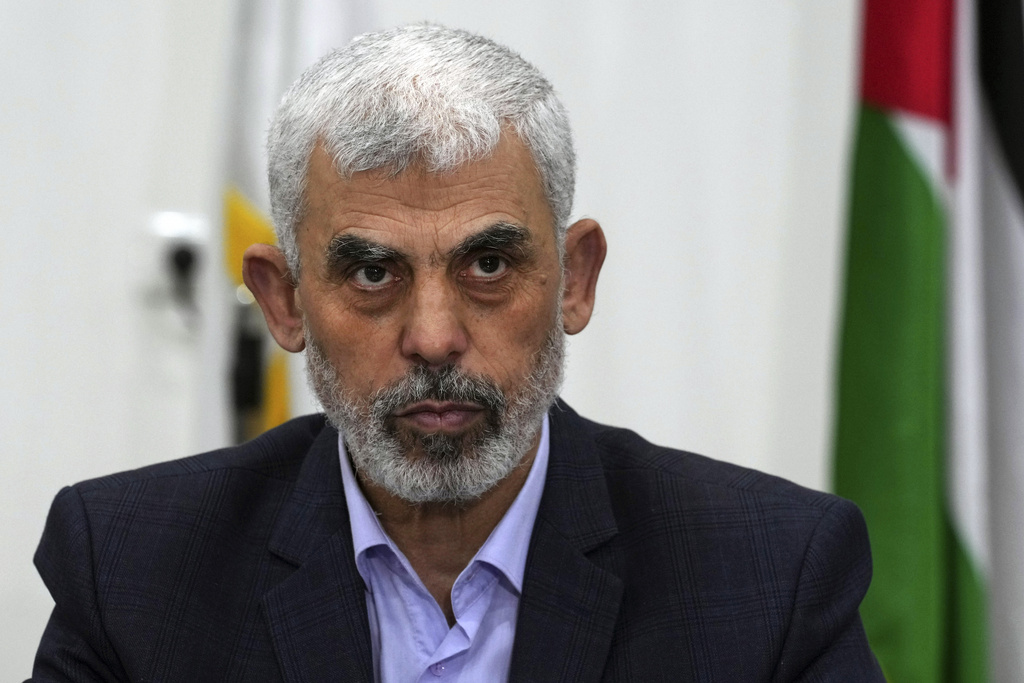Hamas leader Yahya Sinwar’s belief that he will not survive the ongoing Gaza war has intensified in recent weeks, further diminishing the prospects of a truce or hostage deal, according to a report by The New York Times on Friday. Citing unnamed U.S. officials, the report says that Hamas has shown little to no willingness to engage in negotiations, halting progress toward any potential agreements.
U.S. officials suggest that Sinwar’s resignation to his fate is partly due to the death of his predecessor and former negotiator, Ismail Haniyeh, who had been based in Doha. Haniyeh, reportedly more open to deal-making than Sinwar, was killed in a blast in Tehran in July, an attack attributed to Israel, though the country has not officially claimed responsibility. Haniyeh had reportedly played a role in pushing back against Sinwar’s more extreme demands and his death is seen as a significant blow to any prospects for negotiation.
“Sinwar’s anger and frustration have only grown since Haniyeh’s death,” a senior U.S. official was quoted as saying. With Israel closing in on Gaza, Sinwar appears to have abandoned hopes of a truce or hostage exchange, the officials said.
Sinwar has instead pinned his hopes on the possibility of a larger regional war, hoping that an escalation by Iran or Hezbollah would force Israel to scale back its operations in Gaza. However, U.S. officials noted that Iran and Hezbollah’s reluctance to engage fully with Israel since October 7 has left Sinwar’s calculations flawed.
“The cavalry is not coming,” a senior U.S. official told The New York Times, explaining that Iran’s relative restraint in recent months has signaled to Sinwar that his hopes for broader regional support may not materialize. Even after Iran launched a rare ballistic missile strike on Israel earlier this week — the second-ever direct attack of its kind — U.S. officials remain unconvinced that Tehran wants to escalate the conflict further or intervene on Hamas’s behalf.
Meanwhile, Israel has continued to escalate its operations in both Gaza and Lebanon. Ground operations against Hezbollah began shortly after Israel launched a series of intense airstrikes that targeted key figures within the Iran-backed Lebanese terror group. Despite these developments, Hamas has yet to see any significant military benefit from these operations or from Iran’s missile strike.
The report also dispels recent speculations that Sinwar may have been killed. U.S. officials told The New York Times that Sinwar is likely still alive, though communication between him and Hamas has been complicated. Sinwar has reportedly been avoiding electronic devices for several months, relying instead on human couriers to maintain contact.
(YWN World Headquarters – NYC)












3 Responses
>>>“Sinwar’s anger and frustration have only grown since Haniyeh’s death,” a senior U.S. official was quoted as saying.
No senior U.S. official was in enough contact with Sinwar since the death of Haniyeh to be able to make that assessment. If anything Sinwar is thrilled with the death of Haniyeh because it made him the head of Hamas.
>>>Haniyeh had reportedly played a role in pushing back against Sinwar’s more extreme demands and his death is seen as a significant blow to any prospects for negotiation.
During the Haniyeh’s lifetime we didn’t hear anything about him being such a moderate. Let alone see him pushing back against Sinwar. He only became a “moderate” after his death.
Why do I see so much of his photo with such prominence on our sights. He is ugly evil.
ימח שמו